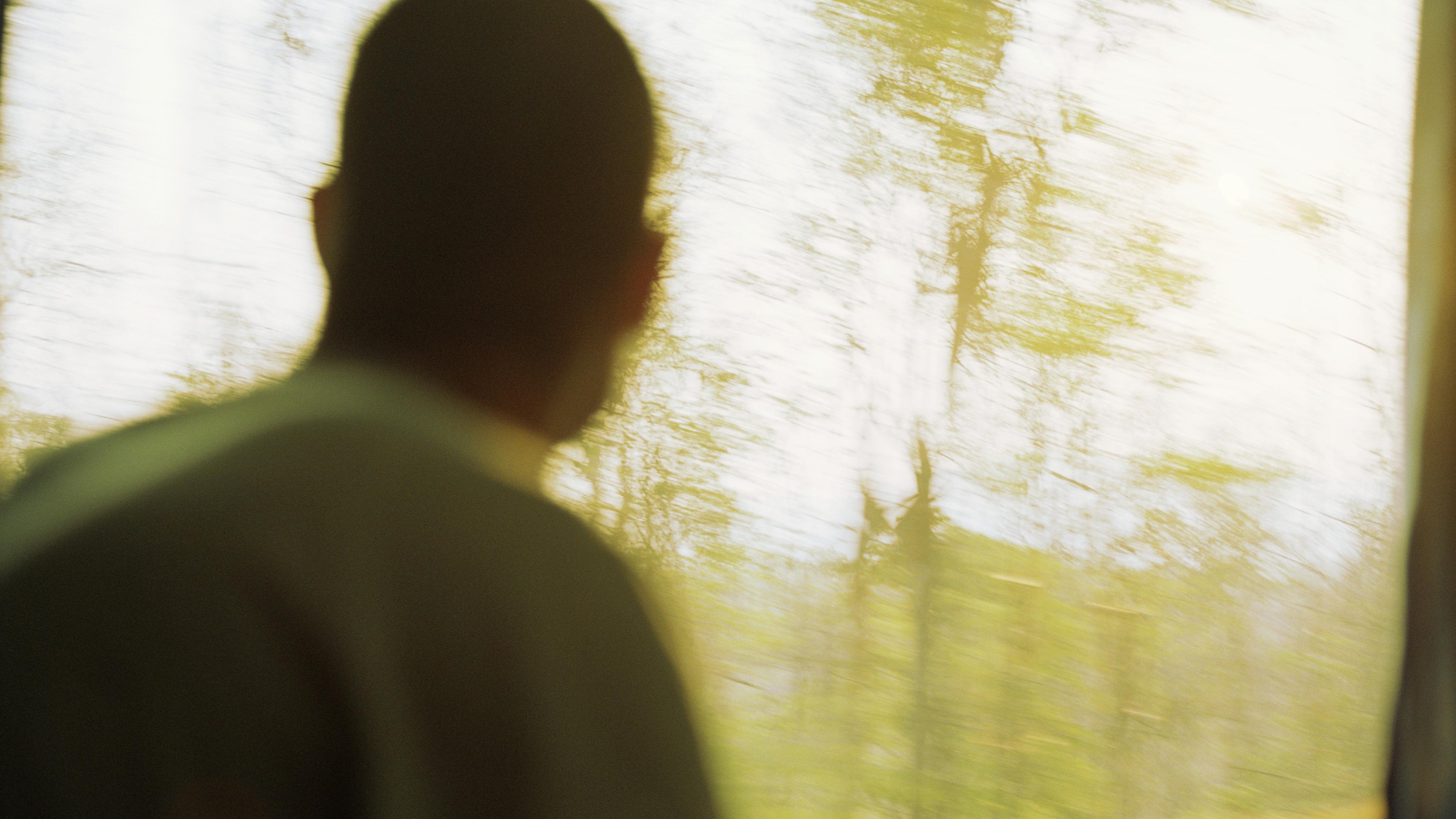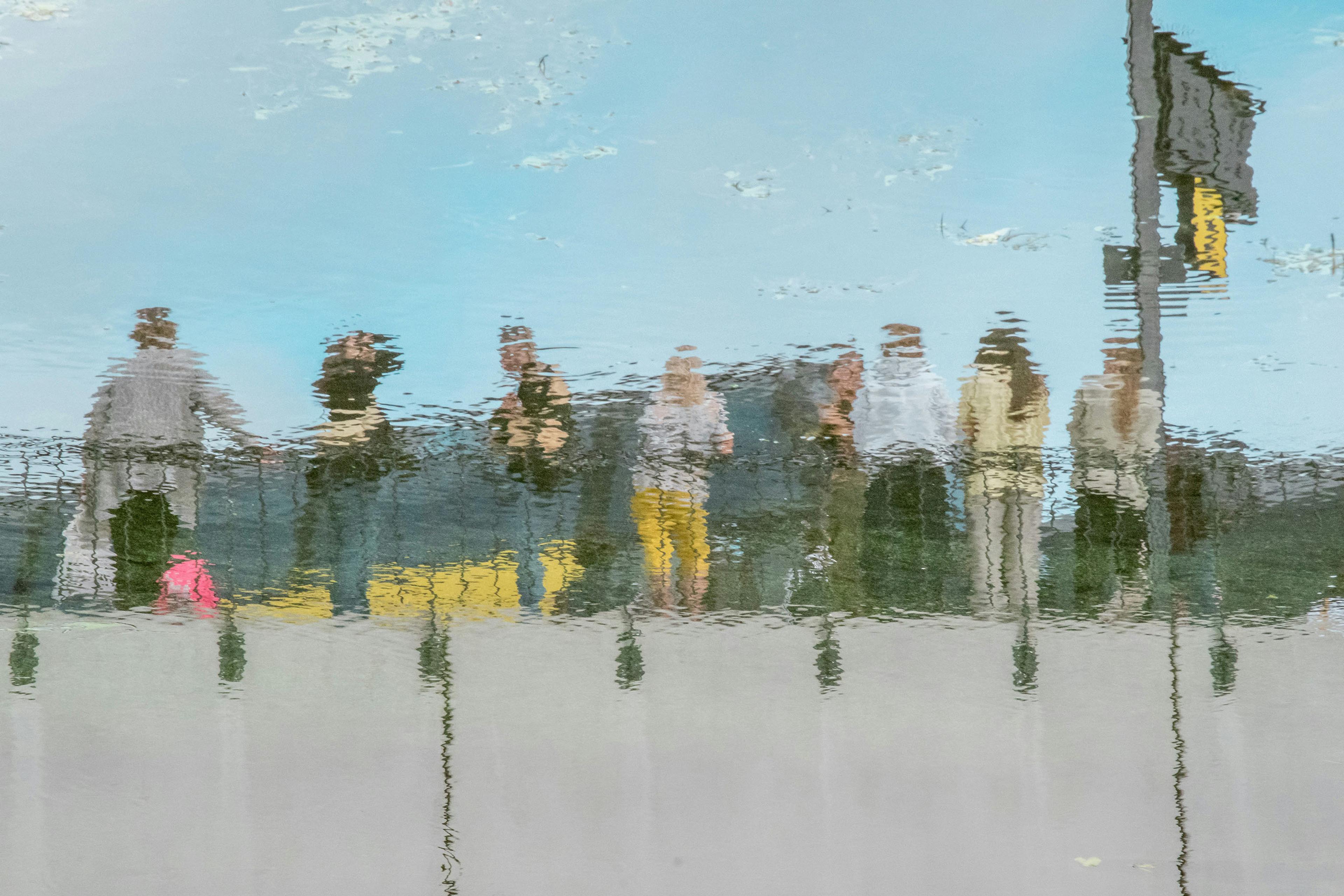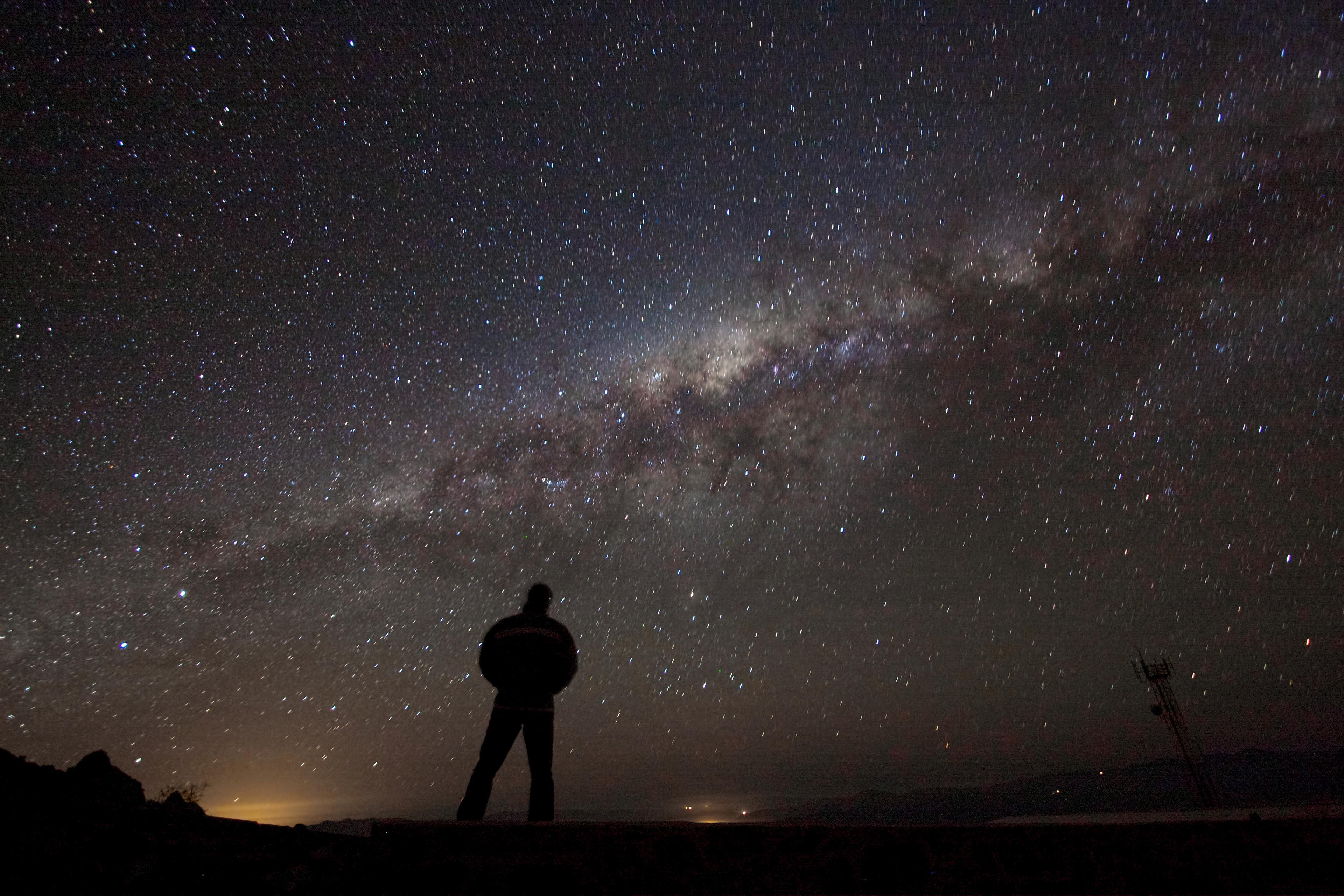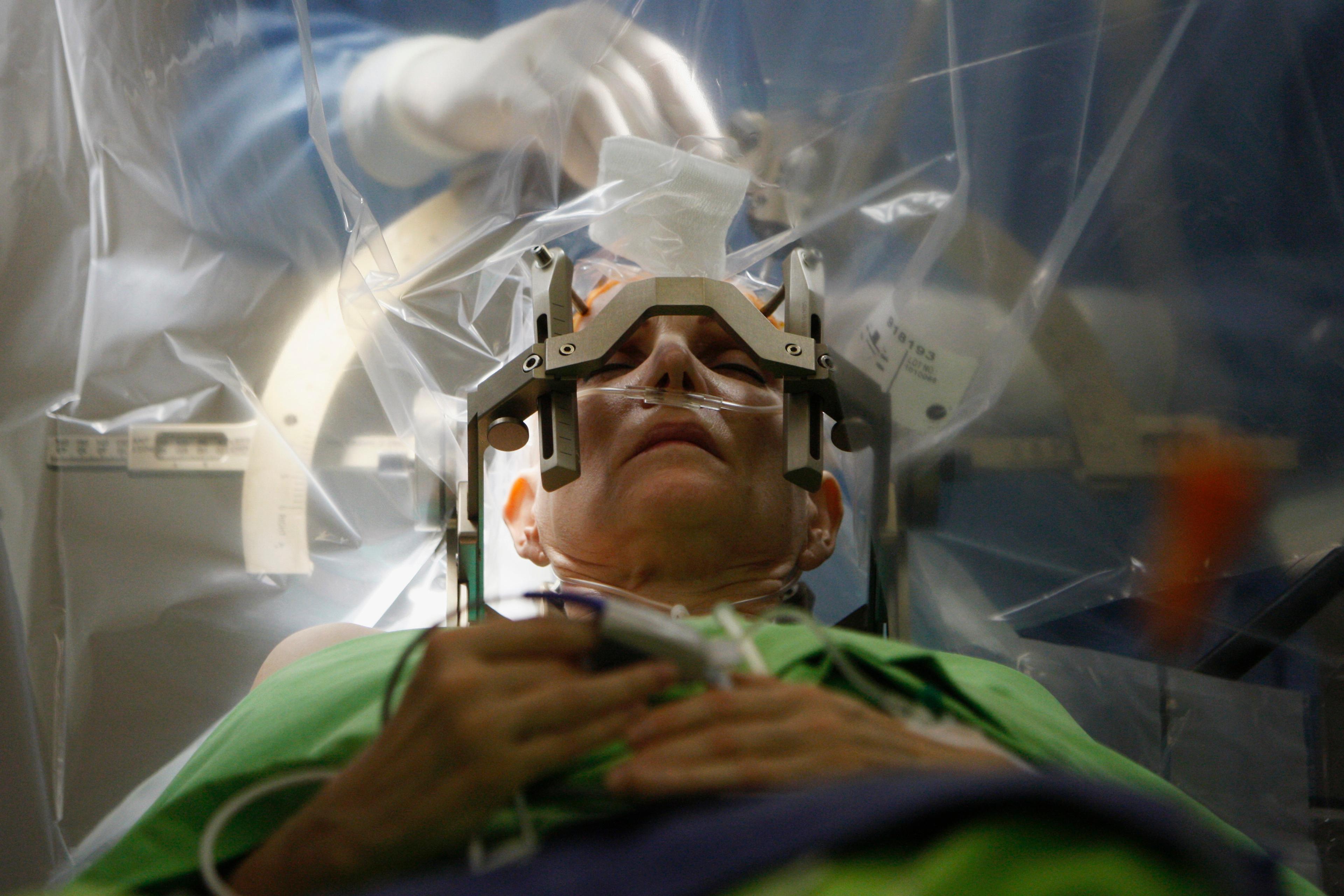I’ve had only one psychedelic flashback in my life. It was about 20 minutes into a therapy session. Unfortunately, I was the therapist.
This was many years ago now, and I believe it lasted much less than a minute. But when that particular veil lifts, time is a yardstick with no markings. For time to be meaningful, one must have purchase on a moment, and then another, and the temporal distance between the two can be measured, like the distance between two pitons on a rock face. But on the other side of the veil, the pitons cannot hold. There is only presence, and presence does not have a duration. Nor does presence, at this deepest expression, require a subject. As time collapsed, so too did any sense of a self that was separate from other things. The very sense of being ‘Eric’ – so foundational and inviolable day-to-day – was revealed to be a notion that required ongoing (if automatic) construction.
Perhaps it is ironic that the bottom fell out of my construction of self in our modern-day Church of the Self: the psychotherapy consulting room. For many years, my work with patients has been focused on engaging with the same centre of selfhood that for me, in that moment, had instantly vaporised. In the therapy room, we investigate with great care the contours of being a particular person, real and distinct from everything else. In this space of therapeutic enquiry, the self is centre-stage and taken as, above all, a very real thing. And of course it is.
But consider an amoeba placed under a microscope. We can adjust the focus to bring a particular plane into sharpness, and in so doing other planes become obscured. The full ‘truth’ of the specimen cannot be seen all at once, but can be approached only in the aggregate of various planes of focus. So it is for the self. To investigate the nature of the self, we might pose these three very different questions, at three particular planes of focus:
- Who are you?
- Who are you, really?
- Who are you, really, really?
At the time of my flashback, I was sitting across from my patient Marjorie, whose name, along with other details, have been changed here. I suspect it was no accident that my temporary loss-of-self occurred during one of my sessions with Marjorie, who was so sure of the solidity and force of her own self, her eyes locked on mine for 50 minutes at a stretch. Over the preceding years, I had invited Marjorie, as I invite all my patients, beyond the question ‘Who are you?’ (the stuff of cocktail parties) and into the depths of the second question: ‘Who are you, really?’ (the focus of psychotherapy). Yes, Marjorie was a successful business owner, but she was also driven by a narcissism that demanded frequent stroking. Yes, she had many friends but, with the subtle game of domination that she played, she drove others to turn away just obliquely enough to leave her vaguely lonely.
The question that we explored together – ‘Who are you, really?’ – is hugely important, and it must be answered coherently if one is to find a way through this relational world. On what other foundation could we hope to build and sustain intimacy; honestly present ourselves to others; comprehend why we think and feel and react the ways we do; behave in alignment with our values; or even know what we truly like and need? If I am to find love, meaningful work and some semblance of satisfaction in this life, I must know myself well (and hopefully with some compassion) at the level of ‘Eric’.
But viewing the self in this way also reifies the basic dualistic premise of self and non-self: there is Eric, and outside of his skin is not-Eric. Eric has been placed in this world that is not him, he must try to navigate it but will mostly be pushed around by it, and in the end he will suffer annihilation. This perspective on the self is inherently neurotic, a breeding ground for worry and often more than a little death anxiety. How am I? Am I OK? How’s my health? My station in life? Am I significant enough? The aim of traditional psychotherapy, often, is to experience meaning, dignity and growth within an essentially neurotic situation.
And so, yearning for more, perhaps suspecting more is possible, we might turn to the third, even deeper question: ‘Who are you really, really?’ This typically is not the stuff of traditional talking psychotherapy. It is instead a spiritual enquiry. By ‘spiritual’, I do not mean to suggest any particular religion or organising cosmological story. I’m referring to an enquiry into who or what we are most essentially, if far less obviously – outside the frame that reifies the idea of the self as an individual unit, instead recasting it as a natural manifestation of, and inseparable from, the timeless substrate from which it arises.
Imagine a dramatically sped-up film of Earth’s history. In the beginning, there is no sign of life. Earth is covered by a vast, salty ocean, containing an array of elements and molecules. Zooming in on this primordial soup, we witness a chain of simple chemical reactions, some of which give rise to basic nucleotides. As time passes we witness more and more complex chemical processes, and emerging from this world in fits and starts are the first single-cell organisms. Over the aeons these organisms bubble into various kinds of tiny creatures, then there are fish, little mammals, bigger ones, untold species living and dying in a split second, until we get to something called Marjorie. It’s all so obviously a single, unbroken happening, beginning with the soup. Watching this film, it’s evident that Marjorie is simply a fleeting moment in a strange event.
So who are you, really, really?
In 1971, the philosopher Alan Watts said: ‘You are a function of what the whole universe is doing in the same way that a wave is a function of what the whole ocean is doing.’ To many people, if this makes sense at all, it makes sense only intellectually, at some level of abstraction far removed from actual experience. But my momentary flashback, in its abrupt termination of the concept of separateness, plunged me into this experience. In fact, it was not really a ‘flashback’ in the sense of a return to the past – it was instead an instantaneous and strangely timed revelation of an ever-present consciousness, one that I’d once and most starkly accessed under the influence of a psychedelic.
As anyone who has visited this mental space can attest, it becomes apparent that the notion of one’s self as a thing, distinct from everything else that exists, is simply an idea. In this space, the mind does not operate in concepts and there is simply what is. Experience and experiencer are undifferentiated, and in this non-differentiation there is the famed experience of ‘union’ so often marvelled at by successful spiritual seekers. And yet because the experience itself is non-conceptual, efforts to describe it afterwards are typically lame.
Perhaps we can best approach this realm of oneness through a poetic rendering of what it is not. ‘The Tao that can be named is not the eternal Tao,’ wrote the ancient philosopher Lao Tsu, to my mind coming the closest one can to furnishing something pithy about the spiritual holy grail. The act of naming is an act of differentiation, creating a boundary around some part of our experience. The ‘eternal Tao’ – the non-differentiated space of experience, where there are no things, no names, not even any ideas – is sheer existence without the conceptual imposition of subject and objects, and beholding it is the aim of many spiritual practices.
Psychedelics, of course, have come in vogue again, but there are a variety of practices meant to bring contact with the non-dualistic space that cannot be named – various traditions of meditation being the most well known. Each practice has its own serious-minded devotees and faddish enthusiasts: breathing techniques, yoga, chanting, extreme exercise, immersion in the natural world, certain sex practices. These are all methods that might lead practitioners into undifferentiated experience, where subject and object are one.
Psychotherapy, for all its enormous use and even beauty, is not a spiritual practice. That it is often treated like one speaks to the pursuit of self at the core of our basic acts of meaning-making. In seeking to understand the situation in which humans so strangely find ourselves (‘What is going on here?’), many of us respond with an emphatic assertion of selfhood: ‘Why, I am going on here!’ Often, we become consumed with trying to live an important life, typically as compared with the importance of other people.
All the while, for many, a hunger remains. My psychotherapy practice is filled with successful people who fear they are missing the meal. They’ve taken their personhood to a winning place, and yet so often they feel empty, disappointed, anxious, confused, alienated. They’ve done it all right, they’ve made money and raised healthy kids and kept in decent shape all the while. And now the kids are gone and doing it for themselves, the money is great but it turns out it’s no destination, and the body is slowly dying. Is this all there is? Has something been missed this whole time? And so, again, we might ask ourselves: who are we really, really?
Of course, it’s hubristic to hope for a full, conceptual answer to this question. But, in the end, an answer is perhaps entirely unnecessary. What’s needed is not-knowing in a particular kind of way: with a sense of wonder, of mystery and, perhaps above all, of belonging here. In the undifferentiated space of spiritual experience, we are not interlopers in a strange land, we are simply of this place. We are, and can only be, home.
I believe deeply in psychotherapy; I’ve devoted my professional life to it. Even if one never engages in spiritual enquiry (and the vast majority of my patients do not), the benefits of good therapy are often profound. Yet, for many people, finding one way or another to engage with the basic spiritual question – who they are, really, really – opens a doorway to the lived experience of being a natural phenomenon, inseparable from a world that otherwise, too often, leaves us with a vague sense of estrangement and loneliness.
After my ‘flashback’, the veil dropped again just as quickly as it had lifted – and I was back on the usual side, in my office, in my therapist’s chair, my chin still cradled in my hand. Marjorie had noticed nothing. I could hear her again: she was talking about herself, excitedly. It was drizzling, and a crow stood sentinel atop the telephone pole outside my window. I was a bit shaken, yet beneath that, utterly at ease, freshly reminded of a belonging beyond measure.








